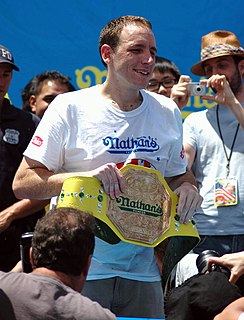Цитата Эдварда Эбби
Литературные критики, как стадо коров или косяк рыб, всегда смотрят в одну сторону, повинуясь той любви к единству, которой требует каждый критик.
Связанные цитаты
Каждая лекция должна констатировать одну основную мысль и повторять ее снова и снова, как тему с вариациями. Зрители подобны стаду коров, медленно движущихся в том направлении, куда их ведут. Если мы сделаем одно замечание, у нас будет хороший шанс, что аудитория пойдет в правильном направлении; если сделать несколько точек, то коровы разбегутся по всему полю. Аудитория потеряет интерес, и все вернутся к прерванным мыслям, чтобы прийти на нашу лекцию.
Эдмунд Уилсон был нашим величайшим американским литературным критиком, потому что он был больше, чем литературным критиком: он был бесстрашным, даже радикальным судьей общества, в котором жил. Tax_; введение в _Patriotic Gore_.) Наши обычные критики не могут простить ему этих вопиющих упущений в хорошем вкусе.
Всякий подлинно литературный стиль, от высокого авторского голоса до Фостера Уоллеса и его сносок-в-сносках, требует, чтобы читатель видел мир откуда-то в частности или из многих мест. Таким образом, литературный стиль каждого романиста — не что иное, как этическая стратегия — это всегда попытка заставить читателя заботиться о людях, которые не такие, как он или она.
Очень немногие критики подходят к своей работе с сочетанием информации, энтузиазма и скромности, что делает их хорошими критиками. Но в критиках нет ничего плохого, пока люди не обращают на них никакого внимания. Я имею в виду, что никто не хочет лишать их работы, а хороший критик не обязательно мертвый критик. Просто люди принимают то, что говорит критик, как факт, а не как мнение, и вы должны знать, является ли мнение критика информированным или неосведомленным, умным или глупым, но большинство людей не утруждают себя этим.
Моя литературная критика стала менее академической. На самом деле я писал историю литературы в «Новой поэтике», но моя общая практика написания литературной критики почти такая же, как и всегда. И всегда была сильная связь между тем, чтобы быть писателем — мне кажется, что я знаю, что это такое внутри, и я могу сказать, что я сталкивался с подобными проблемами и решениями изнутри. И я думаю, что это большое преимущество для критика, потому что вы знаете, что чувствует писатель.
Брак требует предоставления и хранения откровений, обмена мыслями и чувствами, уважения и понимания всегда, брак требует смирения - смирения покаяться, смирения прощать. Брак требует гибкости (давать и брать) и твердости: не идти на компромисс с принципами. И мудрое и умеренное чувство юмора. Оба должны тянуться вместе в одном направлении.
Вы идете в любой город, любой город, любой штат в Америке, и там всегда есть Макдональдс. Во многих местах по всему миру это почти то же самое. А Никки Джованни такой: «Черт, где мы держим всех этих коров?» И это заставило меня подумать про себя: «Черт, где мы держим всех этих коров?!» Это заставляет меня думать, что говядина, которую мы едим, даже близко не настоящая. Во всем мире не может быть достаточно коров, чтобы удовлетворить аппетиты только американцев! Я всегда буду помнить это.
Что касается области вершины горы Вашингтон, то она может иметь плоские и холмистые области. В таких условиях очень трудно не потерять ориентацию, потому что ты не находишься на лице, где знаешь, что верх, а что низ. Вы находитесь на ровной поверхности. Каждое направление одинаково в состоянии белого. А скорость ветра постоянно меняет направление, и уже через минуту вы не представляете, где находитесь.


































